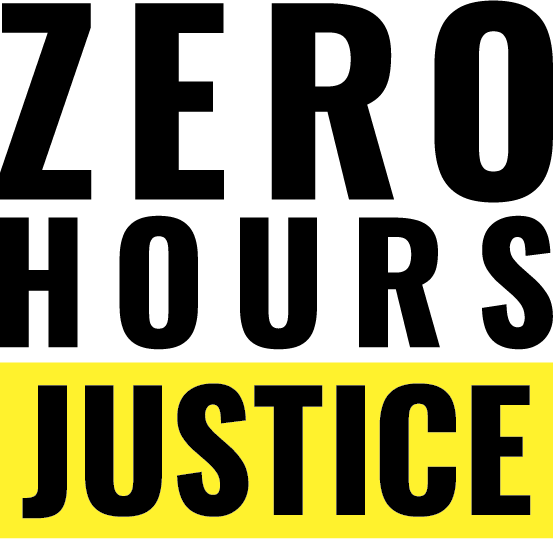|
By Pravin Jeyaraj The maximum pay increase that the average worker on zero hours contract, earning the National Minimum Wage (NMW), is likely to see from April 2022 is just £20 a week, according to an analysis of government data by Zero Hours Justice. Rishi Sunak, the Chancellor to the Exchequer, announced in the Budget that the National Living Wage (the top rate for the NMW for those aged 23 and over) would be increased by 6.6% from £8.91 to £9.50. Much has been made of the fact that this amounts to an increase of just 60p an hour. Whilst any pay rise is good, this is quite pitiful for anyone earning the NMW. The situation is recognised as been even worse for those on zero hours contracts, who do not have guaranteed hours - or even guaranteed work - each week and so whose income will vary from week to week. According to the latest data from the the Office for National Statistics, a zero hours contract worker, doing only job, works an average for 25.5 hours. The data also shows that a zero hours contract worker doing two jobs works an average of 20.2 hours. This means that, following the 6.6% increase in the National Living Wage, a zero hours contract worker, aged 23 and over, doing one job and earning the minimum wage, could see an average pay increase of just £15.05 per week. If the worker is aged 23 and over and doing two jobs, both on zero hours contracts and the minimum wage, they are likely to see an average pay increase of just £11.92 a week. The biggest benefit will be seen zero hours contract workers aged 21-22, with an average weekly pay increase of just £20.91 If a zero hours worker has been topping up their low wages with Universal Credit, then the rise in the minimum wage is, in most case, not even enough to offset the ending of the £20 uplift. The increase does not kick in until April 2022 so, with the recent rise in National Insurance and with inflation going as high as 4% by the end of the year, workers would arguably be worse off in the mean time and any forthcoming pay rise could easily be swallowed up. But, of course, all this depends on whether a worker on a zero hours contracts is able to be offered around 25 hours a week on a regular basis. The reality is, whatever their working pattern, a zero hours worker cannot be certain of how much work they will have from week to week. And, despite government assurances to contrary, we cannot be certain that there won't be another lockdown as the NHS comes under pressure - thereby leading to the loss of even regular work. What would help zero hours workers even more would be a legal or contractual right to a fixed hours contract and the obligation on employers to regularly review hours worked and more workers to fixed hours contracts. At the same time, with the unpredictability of hours, it would we believe that employers should provide at least two weeks' notice of shifts and still pay if shifts are cancelled at less than two weeks notice.
Comments are closed.
|
contactFor press enquiries or permission to reuse content, please contact: Archives
June 2024
CATEGORIES
All
|
|
Company No: 12417909 Registered Office: 38 Coney Street, York, Y01 9ND
|


 RSS Feed
RSS Feed


